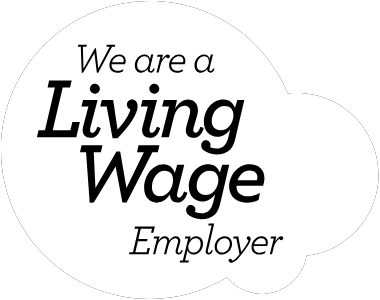We must finance the innovators leading us to Net Zero.
The UK’s biggest green energy supplier neatly encapsulates the opportunities and challenges tied up with financing the net zero economy. Founded in 2013 by two entrepreneurs, Bulb Energy has succeeded in attracting millions in venture capital and is one of hundreds of B Corps that has committed to be net zero by 2030. But it is yet to turn a profit and, to meet its objective of being a carbon neutral business, it has to offset emissions from the gas it supplies its 1.7 million customers. While it can supply renewable electricity, Bulb says there’s only enough “green gas” to meet 1% of the UK’s gas demand. It is calling on the government to tax carbon emissions from heating to help green gas become more widely available.
Financing the transition away from carbon is a huge undertaking, requiring governments, financial institutions, businesses and consumers to play their part. The good news is that the shift is happening.
Since the UK became the first major economy to enshrine the Paris Agreement in law in 2019, the government has unveiled a number of initiatives to make net zero a reality. One of the most recent was a commitment to make the recommendations of the Task Force on Climate-Related Financial Disclosures mandatory. This requires financial institutions, listed companies and large private businesses to report on how climate change affects their governance, strategy and risk management. The aim is that this will enable investors, lenders and insurers to get a clearer view of which companies will flourish in a net zero world.
Momentum is already building in capital markets. The UN-convened Net-Zero Asset Owners Alliance, formed by 33 of the world’s largest institutional investors with $5.1 trillion assets under management, is growing. Described by UN Secretary-General António Guterres as a “gold standard” for a slew of emerging carbon-free commitments, its members are committed to transitioning their investment portfolios to net-zero by 2050.
Funds that invest in companies with environmental, social and corporate governance credentials saw record inflows of USD347 billion last year, according to Bloomberg. And new ones are appearing all the time. Canada-based Brookfield Asset Management, where former Bank of England Governor Mark Carney now works, plans to raise USD7.5 billion for a Global Transition Fund, which will target companies focused on decarbonisation.
Bonds, another big lever of the financial market, are also moving in a more climate-friendly direction. According to BBVA Global Markets Research, the green, social and sustainable bond market is approaching $1 trillion in size. While equivalent to an estimated 0.86 percent of the total bonds in circulation, global issuance of green, social and sustainable bonds grew 37% to $351 billion in 2020.
Criticised as being “a bit late to the game” by UK High Level Climate Action Champion for COP26 Nigel Topping, banks are starting to make solid commitments. HSBC will deliver between USD750 billion and USD1 trillion of finance and investment by 2030 to enable business customers to achieve net zero. Over the same period, Barclays has promised to provide £100 billion in similar funding. Movements such as Bankers for NetZero, which launched in 2020 to help banks support the UK economy to transition to a carbon free future, are sprouting up to push others in the same direction.
The private equity industry has made fewer commitments, at least in public. The world’s biggest private equity firm, Blackstone, has a goal of 15% carbon emissions reduction across all new investments where it controls energy usage, for example.
Venture capital funds, on the other hand, are making a significant bet on net zero. The amount invested by VCs in climate-tech grew by 3750% between 2013 and 2019, according to PwC. However, it warned that the USD60 billion invested over this period was insufficient and cited the need for more patient capital with longer return horizons among a number of recommendations. “We must be clear – the levels of funding and innovation into climate tech have simply been insufficient to drive the pace and scale required for net zero transformation,” the report noted.
Britain’s Climate Change Committee agrees. It forecasts that net-zero investment of all flavours in the UK needs to grow five-fold from £10 billion a year in 2020 to around £50 billion in 2030.
While it is encouraging that the financial community is moving in the right direction, it is clear that it needs to go further and faster. Entrepreneurs need long-term funding to create new climate-friendly companies, scale-ups need backing to prove that net zero models deliver financially, and leaders at large, established businesses need tools to enable their workplaces to decarbonise.
One group of stakeholders who could yet swing the balance is consumers. Armed with increasing knowledge and greater organisation, groups such as Make My Money Matter, which demands that pensions are invested in funds that match their values, are mobilising. And the Gen Z and millennial generations, who believe businesses and governments should do more to protect the planet and spend more on climate-friendly products and services, are making an impact on companies that are not on a net zero journey.
That certainly isn’t the case at Bulb, which has plans to be carbon negative, not just neutral. Backed by VCs and customers committed to the net zero cause, its management is focused on pushing the government to help it reach that goal. We must ensure other innovators get the financial backing they need to succeed.







